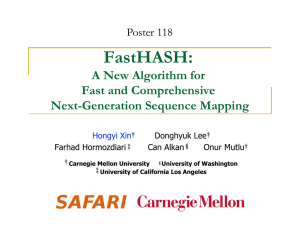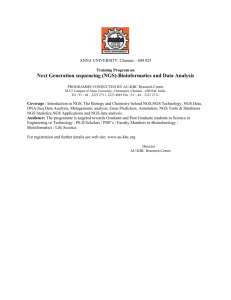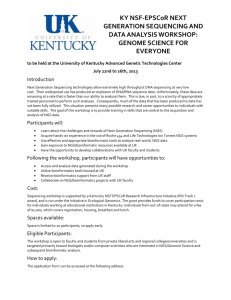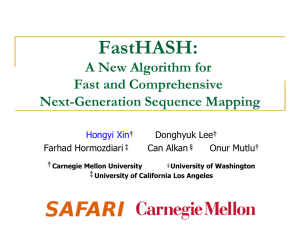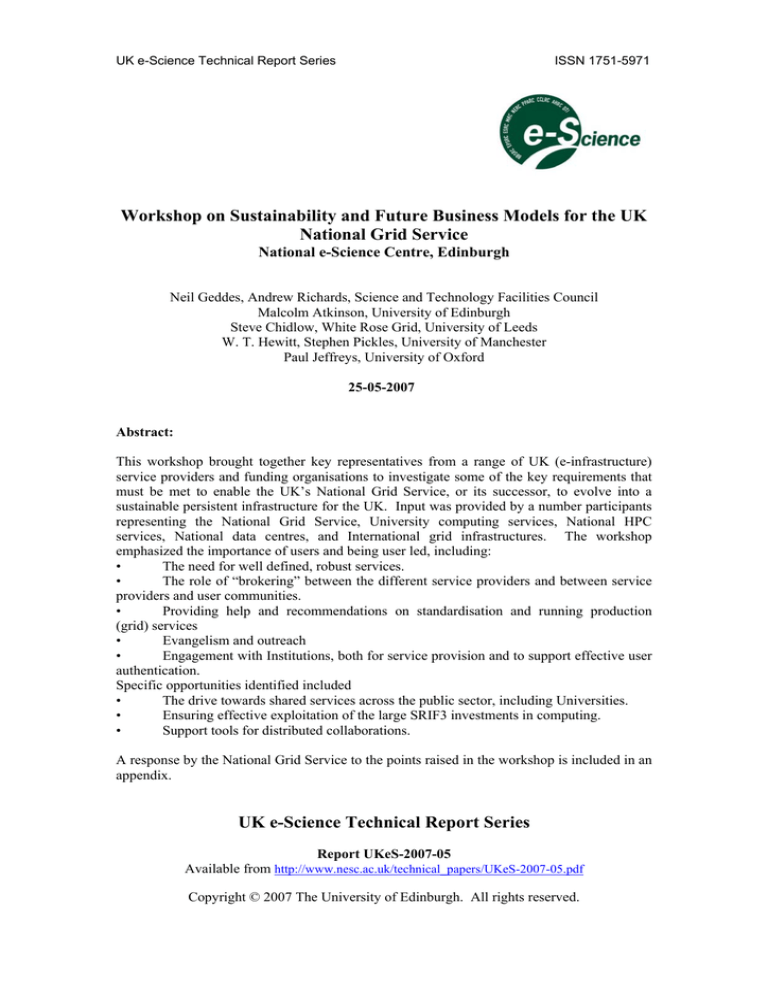
UK e-Science Technical Report Series
ISSN 1751-5971
Workshop on Sustainability and Future Business Models for the UK
National Grid Service
National e-Science Centre, Edinburgh
Neil Geddes, Andrew Richards, Science and Technology Facilities Council
Malcolm Atkinson, University of Edinburgh
Steve Chidlow, White Rose Grid, University of Leeds
W. T. Hewitt, Stephen Pickles, University of Manchester
Paul Jeffreys, University of Oxford
25-05-2007
Abstract:
This workshop brought together key representatives from a range of UK (e-infrastructure)
service providers and funding organisations to investigate some of the key requirements that
must be met to enable the UK’s National Grid Service, or its successor, to evolve into a
sustainable persistent infrastructure for the UK. Input was provided by a number participants
representing the National Grid Service, University computing services, National HPC
services, National data centres, and International grid infrastructures. The workshop
emphasized the importance of users and being user led, including:
•
The need for well defined, robust services.
•
The role of “brokering” between the different service providers and between service
providers and user communities.
•
Providing help and recommendations on standardisation and running production
(grid) services
•
Evangelism and outreach
•
Engagement with Institutions, both for service provision and to support effective user
authentication.
Specific opportunities identified included
•
The drive towards shared services across the public sector, including Universities.
•
Ensuring effective exploitation of the large SRIF3 investments in computing.
•
Support tools for distributed collaborations.
A response by the National Grid Service to the points raised in the workshop is included in an
appendix.
UK e-Science Technical Report Series
Report UKeS-2007-05
Available from http://www.nesc.ac.uk/technical_papers/UKeS-2007-05.pdf
Copyright © 2007 The University of Edinburgh. All rights reserved.
Workshop on Sustainability and Future Business Models for the UK National
Grid Service
National e-Science Centre, Edinburgh
February 22-23, 2007
1. Executive Summary
This workshop brought together key representatives from a range of UK (einfrastructure) service providers and funding organisations to investigate some of the
key requirements that must be met to enable the UK’s National Grid Service, or its
successor, to evolve into a sustainable persistent infrastructure for the UK. Input was
provided by a number participants representing; the National Grid Service, University
computing services, National HPC services, National data centres, and International
grid infrastructures. The workshop emphasized the importance of users and being
user led, including:
•
The need for well defined, robust services.
•
The role of “brokering” between the different service providers and between
service providers and user communities.
•
Providing help and recommendations on standardisation and running
production (grid) services
•
Evangelism and outreach
•
Engagement with Institutions, both for service provision and to support effective
user authentication.
Specific opportunities identified included
•
•
•
The drive towards shared services across the public sector, including
Universities.
Ensuring effective exploitation of the large SRIF3 investments in computing.
Support tools for distributed collaborations.
Ultimately users and user need ensure sustainability.
2. Introduction
This workshop brought together key representatives from a range of UK (einfrastructure) service providers and funding organisations. The aim of the workshop
was to investigate some of the key requirements that must be met to enable the UK’s
National Grid Service, or its successor, to evolve into a sustainable persistent
1
infrastructure for the UK. The workshop focussed on the issues and problems around
providing, funding and sustaining services in an integrated infrastructure.
The specific objectives of the workshop were to understand what the represented
bodies want a national grid service to be and not be and what is needed to achieve
this.
The workshop programme was as follows:
Day 1, 14:00-17:30
Introduction
NGS Partnership
University resources and Full Economic Costing
National Computational Services
National Data Centres
D-Grid progress towards sustainability
Commercial Services
outsourcing
Neil Geddes
Stephen Pickles
Pete Clarke
David Henty
Peter Burnhill
Wolfgang Gentzsch
Terry Hewitt
Rhys Newman
Dinner discussion of issues and requirements for a national grid service.
Day 2, 09:00
Breakout groups to discuss
• Requirements and issues from the perspective of service providers
• Requirements and issues from the perspective of users and funders
Summary and next steps
The goal of the first day was to provide input to the discussions of the second day.
Speakers were given a very broad brief to explain their perspective, expose their
requirements and/or constraints on any national infrastructure, and raise any general
issues and challenges. We have not attempted to reproduce the full presentations
here. These should be available from the NeSC website at the following URL:
Original Event Page: http://www.nesc.ac.uk/esi/events/731/
Event Material : http://www.nesc.ac.uk/action/esi/contribution.cfm?Title=731
In this report we only give a very brief summary of day 1, focussing primarily on the
discussions form day 2.
3. Day 1
Introduction - Neil Geddes
Neil gave an introduction to the Workshop and a brief overview of the mission and
goals of the current National Grid Service (NGS).
NGS Partnership - Stephen Pickles
2
Stephen gave an overview of the current NGS partnership programme. He
summarised the current and possible future partners, providing justifications as to why
NGS partnership was valuable for the partners.
University resources and Full Economic Costing - Pete Clarke
Peter explained the requirements that “Full Economic Cost” (FEC) were now placing
upon University computing services. He suggested ways in which a National Grid
Service could fit into this model, both as an enabling centre of expertise and as a
forum for sharing University resources. Additionally such a service could provide
access to paid for services. The FEC regime presents some significant challenges to
Campus computing. Peter suggested that computing should be an overhead activity,
but to achieve this required that services became much more general and agile (like
the telephone systems). There is a need to break the link between “computing
service” and “owning a computer”. If this can not happen there is a risk that FEC
could kill off much University funded computing. Universities need to provide “free at
the point of use” computing for many of their members in addition to the ability to
support guaranteed services directly allocated to research projects. Many universities
were now coming to mixed models supporting both.
National Computational Services - David Henty
David summarised the history of UK HPC services over the last 12 years. Went on to
describe why grid computing is not more prevalent in HPC. This includes:
• Systems are specialised
• Projects allocated substantial CPU/disk budgets at grant stage and support
large multi user collaborations running for many years on the same system.
• Applications are not standard packages. Projects typically spend a lot of time
developing and debugging software.
• most users are experts (and code developers)
• Data volume is a huge issue
David went on to describe the DEISA project which is addressing grid style
metacomputing across HPC sites. Interestingly there is work underway within DEISA
to abstract the HPC layers under OGF/SAGA compliant interface layers which allow
for use with more sophisticated grid computing tools such as workflow management.
National Data Centres - Peter Burnhill
Peter gave a brief overview of the National Data Centres, Edina and MIMAS. He
explained the user (service) focus of the centres and the emphasized the importance
of a robust and integrated user authentication and authorisation system supporting
open and licensed access Any new or emerging National infrastructure would have to
provide full integration with the systems supported by and for the National Data
Centres. This is Athens at present and Shibboleth in the future. An important feature
here is that the user authentication lies with the Universities. It is important to engage
users through these institutions. Infrastructure (user) communities take a long time to
grow. Therefore, it is important that any new infrastructure has some strategic security
of funding. This must be accompanied, however, by a robust review of the services
provided. Peter Indicated that the Data Centres have a long history of providing user
focused services, which could be valuable to the NGS.
3
D-Grid progress towards sustainability - Wolfgang Gentzsch
Wolfgang gave an overview of the D-Grid project and its progress towards becoming a
sustainable infrastructure in Germany. A workshop on D-Grid sustainability was held
in October 2006. Wolfgang emphasized that “need” ensures sustainability. In general
users like stability and do not like change. The current, second, phase of D-Grid
includes commercial service providers in order to test new business models; looking
towards sustainability. Inevitably, the Government will continue to fund the Grid
resources themselves. D-Grid is based on creating virtual competence centres based
around existing expertise. Historically too many attempts to set up new “green field”
organisations have failed, primarily because they did not value and manage the
existing people expertise effectively. Sustainability needs a professional service, a
professional service needs experts, and expertise needs long term funding. D-Grid
plans virtual centres for generic middleware, grid resources, user support and
knowledge (research). Applications are a strong driver for D-Grid with little support for
the belief that if “you build it they will come”. A Service Level Agreement (SLA) layer is
being planned between the user communities and the generic middleware and grid
services. D-Grid have invested in a downloadable “D-Grid software stack”, where
quality, integration and interoperability is assured by the project.
Commercial Services - Terry Hewitt
Terry gave an overview of the CSAR service which ran form 1998 to 2006 and in
particular of the novel (at the time) funding model used for this service. He
emphasized that there were already organisations who are prepared to offer
guaranteed computational services via the grid on a commercial basis. A major hurdle
is a suitable funding model for users. In particular one which would be fully integrated
into that for other national research resources such as the National HPC services.
Outsourcing - Rhys Newman
Rhys explained how, having been responsible for coordinating the provision of a new
university computer building, he was now convinced that Universities should
outsource their large scale research computing. The costs associated with
commissioning, constructing and operating modern large scale computing installations
are not justifiable in the era of FEC. So far, however, no major Universities had
successfully outsourced significant computing. Rhys also reported on a project he is
involved with which aims to provide a virtualisation layer to support creation and
management of “cycle scavenging” grids. An important component of the project is the
architecture independence of the infrastructure as viewed by the users. This project
initiated much discussion, accompanied by some scepticism of cycle scavenging grids
in general.
4. Day 2
The discussions are reported in summary. There was no attempt to reach a formal
agreement on the points raised, however, many of them reflect a consensus which
emerged from subgroup discussions during the meting. Here we simply report the
comments made and where there was strong agreement or disagreement.
4
Breakout Session: Requirements and issues from the perspective of service
providers
A Key aspect to understand in defining the framework for any national grid service is
the focus on services and service provision. It is important to understand better the
nature of the service or services offered by (or through) a national grid.
It is clear that there are and will always be a number of different classes of user.
Different users will have very different requirements for authentication and
authorisation. This is particularly relevant where we expect services to be used e.g. in
turn by university ICT service providers who will wish systems to be integrated with
their existing authentication systems which give them local control.
There are a number of separate classes of service provider; National providers such
as UK HPC, local HPC systems and high throughput computing systems based on
campus grids and Condor. Access to these systems may require very different levels
of authentication and they may provide very different levels of user service.
There are significant challenges around licensing of commercial software (and data) in
grid environments. Issues arise around who the (potential) users are, which machines
the licenses will be used on and who owns these machines. Many of these questions
can not be answered a priori and current commercial licensing models rarely work for
grid computing. Much relevant licensing already takes place at an institutional level
which shows that academic community licensing models are possible. It was agreed
that addressing issues around licensing can benefit from larger scale aggregated
negotiations. Developments on a European scale could be helpful here. It is not just
software which is licensed, data is licensed too. Should the NGS be a gateway to
licensed software? Ultimately this will depend upon the available licensing models and
whether these would allow negotiation or management on behalf of user groups. In
any case Service Providers are conscious of terms of licenses they hold and are
generally held responsible for enforcing the license terms.
To be successful a grid infrastructure needs to be rich in services that people want.
This want or need is ultimately what will ensure stability. Is there a range of existing
services that would benefit from grid integration or delivery? Or where their users
would benefit from such integration? What new services can be conceived?
“Data” is clearly an important area. Accessible storage is needed for an increasing
range of primary research data. There is also a growing need to store secondary user
generated or derived data. Funding models are deficient in this area at present. In
practice, there is value added data, which is expensive to re-create (e.g. bioinformatics, large faciltity) and is valuable for secondary use. All of these are general
data issues. What NGS should do for data? Should NGS “cache” data? Provide
places for replicas? Should NGS backup data? Should NGS curate data? Should
NGS preserve data? Probably not for the latter two, but this depends upon the
detailed definition of the NGS. There are clear roles for “partners” in all of these areas
with access possible through an integrating “NGS”.
Users and organisations increasingly are looking to outsource off-site
backups/replicas. How does NGS fit into this? Is there a brokerage role or service role
5
here? Can NGS recommend what the appropriate interfaces should be, develop
appropriate SLAs, or possibly act as the centre of a support network?
In each of these data related areas there is a clear brokering role between institutions.
NGS should work with data service providers to develop suitable models. Institutions
are the guardians of user identity and are also candidate service providers.
In the longer term, should NGS be a service provider to end users, or provider to
provider broker? NGS should focus on things that must be done on the network level
and can’t be done at the institutional level.
Looking towards the future the NGS could provide a platform for developing and
expressing demands on service providers at institutions and elsewhere. There may be
an opportunity to develop a marketplace for specialist services that not all institutions
can afford. NGS needs to identify and advertise places where these exist. Cost reallocation between institutions would be a real coup! There is a fear that local
university services are dumbing down, becoming more generic, and creating gaps.
There are opportunities for the NGS as advocate, engager of service providers and
recommender of interfaces.
Breakout Session: Requirements and issues from the perspective of Users
Full Economic Costing is necessarily bringing the full cost of computing/IT services
under scrutiny. Universities are seeking to recoup the costs of investments wherever
possible, for example, through charging for use of their services, particularly to
external users. This will reduce the availability of “free” service offered by the NGS to
those from the core nodes, or services explicitly funded to provide free at the point of
use facilities. The NGS should move towards an open market where partners are free
to declare their own requirements and restrictions on (charging for) services.
Users of the grid currently suffer from poor levels of control and visibility through the
various layers of software/middleware. The grid is currently complex, often counter
intuitive and the complexity is not hidden from the users. Users often receive poor and
confusing feedback.
What is the “NGS Service” from a user perspective? There needs to be more
emphasis on getting the key messages across and on identifying exactly what these
are, e.g. stability and data storage. Outreach and evangelising are vital for the NGS.
There should be a dedicated “Outreach” post. The NGS should place more emphasis
on data storage rather than compute.
There will be increasing demand for Windows access. More and more (commercial)
programmes are moving the Windows O/S as their primary platform. This will
continue with the emergence of the Windows HPC platform.
The NGS aims to support distributed collaboration. However, there is little or nothing
in the way of collaboration tools explicitly supported by the NGS. This is an area which
could easily be improved, not necessarily by the NGS developing or supporting its
own tools, but by sharing expertise and experience.
6
5. Specific Additional Discussions
What is the role for a national grid service?
The consensus view was a role providing coordination of UK efforts in network ICT,
including, for example:
•
Liaison with other “National Grid” efforts
•
Blessing of key central services, not necessarily provided by the NGS
•
Operating as a benchmark of software interfaces
•
Operating central services necessary to create the distributed communities
•
Access to specialised or novel facilities not available at all universities
•
A forum for sharing expertise and best practice
In addition there are clear needs and opportunities in providing data storage,
facilitating inter-group collaborations and in providing advice and support for effective
exploitation of the large SRIF3 investment in computing infrastructure.
What should a national grid service not be/do?
The NGS should not compete with things better done elsewhere or attempt to define
the underlying software. The NGS should focus on only the interfaces.
How should a national grid service be governed?
Any National Grid Service should be user led with an appropriate steering committee
reflecting this. Ultimately it should be an independent body which provides a (paid for)
service that the “users” can influence and/or walk away from.
How should a national grid service be funded?
A wide range of ideas and requirements were identified here, including:
•
Compute resources should be through university or national resources (i.e. not
funded by the NGS itself).
•
The NGS should be funded In 5 year tranches with rigorous review of outputs
before renewal.
•
The “shared services” agenda presents an opportunity for the NGS (and
others) to remove the need for things to be done locally.
•
Several funding streams are necessary to avoid over dependence upon any
single body or award.
•
Lottery grant (after-dinner suggestion!)
7
6. Summary and Next Steps
Key themes emerging during the discussion and summary sessions were:
•
The importance of users and being user led.
•
The need for well defined, robust services.
•
The importance of data and the need to define the roles of the NGS and its
partners in this area.
•
The role of “brokering” between the different service providers and between
service providers and user communities.
•
Providing help and recommendations on standardisation and running
production (grid) services
•
Evangelism and outreach and the importance of dedicated effort here.
In addition, several specific opportunities were identified, including:
•
•
•
The drive towards shared services across the public sector, including
Universities.
Ensuring effective exploitation of the large SRIF3 investments in computing.
Support tools for distributed collaborations.
In wrapping up, the question was asked “If we didn’t have a national grid service today
would we want to create one?” A range of responses was forthcoming; from
“definitely yes” through to “probably not”.
Follow up actions from the workshop are:
1. Reinstate plans to form a user led steering group for the current NGS.
2. Improve the information available on the services offered by the NGS.
3. Appoint an outreach officer for the NGS.
4. Support for collaborations
5. Write up a (brief) summary of the workshop.
6. Focus on services
8
Appendix: A Response from the National Grid Service to the NGS Sustainability
Workshop
Neil Geddes, Science and Technology Facilities Council
Background
Intentionally, this workshop did not begin with a comprehensive vision or overview of
the current UK National Grid Service (NGS). This was to encourage participants to
bring to the workshop their own interpretations of what is meant by such a service,
including their unconstrained aspirations and their prejudices. In this way we, the
NGS, might benefit from their vision, while being able to address misinterpretations
and prejudices following the workshop. This response in part addresses this, and in
part offers an initial formal response to the workshop.
The vision of the National Grid Service is to provide coherent electronic access for UK
researchers to all the computational and data based resources and facilities required
to carry out their research, independent of resource or researcher location. To achieve
this, the NGS is leading the deployment of a common grid infrastructure for combining
services and information from multiple sources. The goal is integration of services and
resources to support straightforward exploitation of local, national and international
resources as required (and authorised). The NGS aims to provide a standard set of
interfaces and tools whereby local systems can be shared across institutions to
optimise both use and return on investment. The NGS must pioneer systematic
arrangements that relieve the development load on both resource providers and
resource users in order to reduce the need for specific arrangements for access,
bespoke software, or intensive researcher effort. Through the NGS Partnership
programme, NGS seeks to integrate services to access a growing number, scale and
variety of resources spanning the complete space from advanced real time facilities
such as synchrotrons and telescopes through to complex queries of historical data
stored in national or institutional data centres.
Partnership is a key theme. The NGS itself operates the core services required to
exploit local, National and International Partner facilities, provides support to the users
of the service, and will monitor and help troubleshoot the services provided by all
partners and the underlying infrastructure. However, the NGS itself can not directly
control or operate all of the international resources that researchers require. It is
extremely unlikely that the NGS, or any successor infrastructure, would ever “own” or
control all of the resources that researchers would need to access even considering
the UK alone. Therefore, a federated approach such as the NGS partnership model is
central to the successful future evolution. In some sense Partnership continually
changes, and broadens, the scope of the NGS. This is the intention. The scope of the
NGS is and should be defined by its partners within the overall vision of an integrated
infrastructure.
To exploit fully the potential of a shared infrastructure requires that key stake holders,
including resource owners and funders as well as researchers, develop and agree a
shared vision of the future and of their own responsibilities in developing and
supporting it. Any vision which does not meet the needs of these stakeholders will be
9
a largely pointless exercise, but equally any infrastructure missing key existing and
planned resources through lack of engagement will be a sorely missed opportunity.
This is particularly true in emerging inter-disciplinary fields which, by definition, will
bring the need to work across traditionally separated resources. Many existing and
planned research facilities, of all types, have previously not identified the implied
integration as a benefit and may see it as a threat. Arguments against such
integration, e.g. from specialised services or facilities, miss the point. Many services
are specialised, be they the UKs most powerful HPC system, the data from unique
instruments such as Diamond, data from national data services, or systems where
specialist software is installed. The debate should rather be whether or not the
research community can benefit from more integrated access to and exploitation of
the full spectrum of such resources nationally and internationally. Staying out of this
(“grid”) game would appear to restrict rather than enhance the potential exploitation of
the resources and thereby encourage rather introverted or closed communities.
Key Points Raised During the Workshop
The “brokering” and championing role of the NGS was identified as important in two
ways; as an arbiter of best practice and approved mechanisms/interfaces, and as a
neutral match-maker between service providers and users. The emphasis at the
workshop implied that this represents an opportunity at least as much as a current
status. This is turn in part reflects the lack of a truly shared vision across the workshop
participants. Further work is clearly needed to develop and support such a vision. The
workshop clearly identified the National Grid Service as one potential mechanism for
achieving this but is equally seen as a threat or competitor in some areas represented:
e.g. “The NGS should not compete with things better done elsewhere or attempt to
define the underlying software”. Clearly there is a need for a body to take on this
broking and coordinating activity. NGS will work to further develop
interface/standards recommendations and a brokering role and is keen to work
with others to define and achieve the goals of a broader infrastructure.
The NGS sites now have extensive shared experience running production grids which
integrate small, medium and large HPC systems together with data storage systems.
This experience will be valuable to the increasing number of institutions investing
significantly in HPC for the first time. NGS will investigate how best to exploit this
expertise and will seek to work with groups such as HPC-SIG and HPCSC to
achieve this.
The issue of “Shared Services” across the public sector was mentioned on several
occasions. Common or centralised provision of existing or standard services (related
to computing and data management), while possible, is not a current driver for the
NGS itself. Candidates for such services could emerge naturally from the model of
robust services that the NGS aims to deploy/support, but equally, relevant services
could be defined elsewhere. Wherever such a service was developed, there should
clearly be a strong requirement for integration with the NGS through formal
partnership.
A recurring theme during the workshop discussion was a focus on the selfsustainability of a set/system of well defined services. In practice, many of these in
fact may already exist. The key is to access and/or integrate them. This requires
commitment from the services which in turn requires at least acknowledgement and
10
probably commitment from the funding bodies. Services are at the heart of the NGS.
Not simply reproducing existing features that can be bought “off the shelf” but
addressing current and future needs of researchers collaborating across boundaries.
The boundaries may be subject, geographical, institutional, or associated with
particular resources or facilities. At all times, however, the NGS remains careful to
deploy functionality supported by robust managed services. The balance between
providing well defined stable services, versus driving the development of innovative
new integrating activities is a key component of the shared vision that is needed. The
NGS will continue to deploy robust managed services based on open
interoperable standards.
The importance of outreach and user focus was emphasised at the workshop. Both of
these are recognised by the NGS as vital for the success of the UK’s e-Infrastructure.
The NGS web site and support material is currently undergoing a detailed
reorganisation in order to better meet the needs of users. At the same time NGS are
working with JISC to develop a programme of development activities targeted at
developing and supporting new user communities. The initial components of this
work have been funded under the JISC e-Infrastructure programme. Additional
opportunities for new communities should be announced shortly under this same
programme. For outreach activities, NGS is currently seeking to appoint a
dedicated outreach/liaison officer with full authority/responsibility for developing
new user communities. This post will also work closely with related activities in
GridPP (http://www.gridpp.ac.uk) and EGEE (http://public.eu-egee.org). In addition,
NGS will set up a formal User Board to advise on support of the existing user
community.
11



